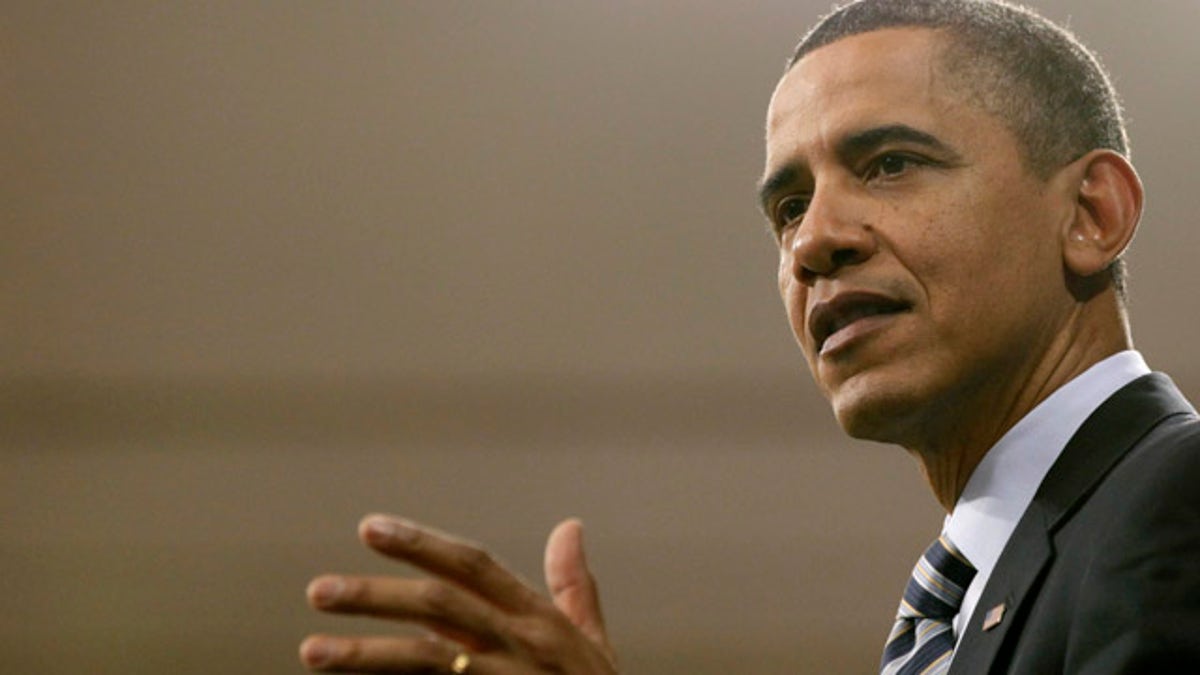
Feb. 10, 2011: President Barack Obama speaks at Northern Michigan University in Marquette, Mich. (AP)
WASHINGTON -- Showing impatience, President Barack Obama openly and sharply questioned on Thursday whether Egyptian President Hosni Mubarak's pledge to shift power to his vice president is an "immediate, meaningful or sufficient" sign of reform for a country in upheaval.
Without naming Mubarak, Obama issued a written statement that criticized the leader for not offering clarity to his people or a concrete path to democracy. He urged the Egyptian government leaders to do so, declaring: "They have not yet seized that opportunity."
Obama's comments came after Mubarak, in a televised speech, refused to step down despite intense speculation that he was on the brink of ouster. He said he was delegating powers to Vice President Omar Suleiman, yet Mubarak remained president and defiantly said he would continue as president until a successor had been elected to replace him in September. Protesters were shocked, saddened and enraged.
At the White House, Obama worked quickly with his national security team on how to respond to a speech that had left many surprised and even baffled. In his statement, Obama challenged Egypt's leaders to explain plainly what the new changes mean and how they would lead them to the freedoms or opportunities that have driven enormous crowds into the streets since late January.
"Too many Egyptians remain unconvinced that the government is serious about a genuine transition to democracy," Obama said, "and it is the responsibility of the government to speak clearly to the Egyptian people and the world."
Still, analysts and even U.S. officials themselves acknowledge the White House has limited power to shape what Egypt does.




